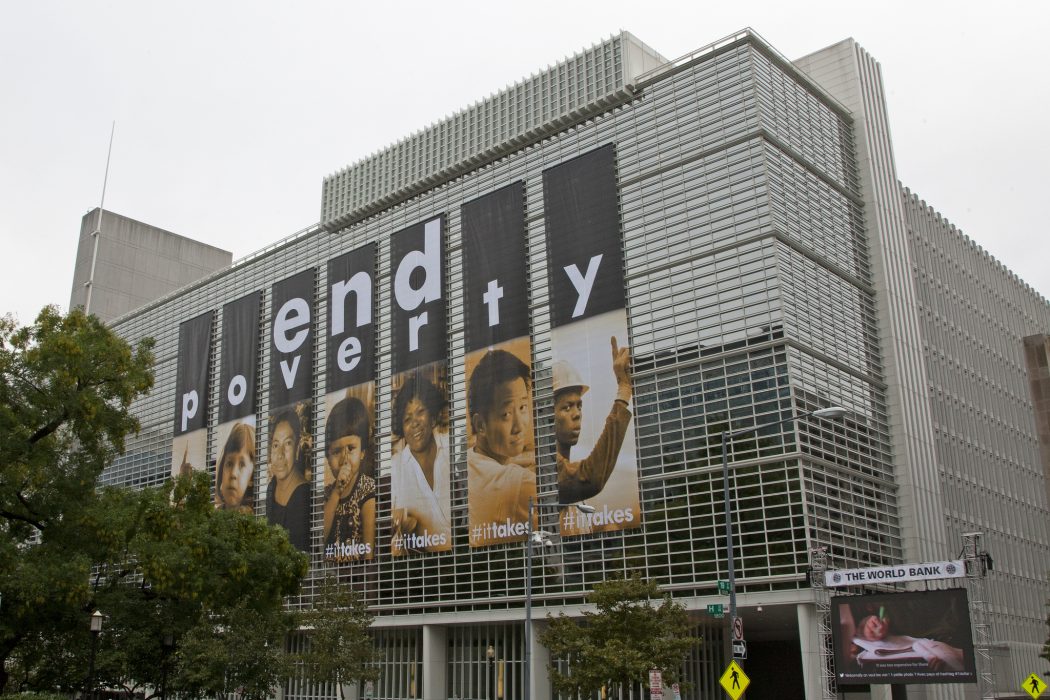Addressing the urgent need for sustainable growth in developing countries, World Bank President David Malpass lectured on the relationship between economic development and environmental sustainability in Pollack Hall on October 7th. The lecture was a preview of the International Monetary Fund (IMF) and World Bank’s upcoming agenda for the annual conference, which will take place next week in Washington. During his lecture, Malpass addressed the urgent need for economic development and environmental sustainability to work hand-in-hand.
The World Bank provides investments and loans to developing countries with low gross national income, as a means to encourage broad support for capital-increasing projects. Malpass, the thirteenth president of the World Bank, also served as Under Secretary of the Treasury for International Affairs for the United States and has been the U.S. representative for a number G-7 and G-20 summits.
At their conference in Washington, World Bank members will discuss developments that drive the global economy towards a future that is both environmentally and economically sustainable. Malpass opened by stating, “Digital cash secure systems allow poor people to receive social safety, foreign aid and income [accessibility].”
The World Bank tries to refocus investment into projects that can contribute to current real-world issues affecting developing countries, rather than tying up capital in funds that are inaccessible.
Malpass led with the example of Kenya’s upcoming electronic banking infrastructure, which is growing in popularity in other parts of Africa. Malpass explained that banking analysts in Nairobi, Kenya recently observed a suspicious amount of electronic banking activity around 3:00 a.m. each day. Upon doing more research, they realized the spike was caused by Kenyan women taking out loans each morning to buy produce. They would sell this produce at local markets, supporting their families by working until they could repay their loans.
“This gender-neutral digital system gives women more control of their budgets in developing countries” Malpass argued, supporting new banking systems that are distributed away from governments and potential corruption.
Malpass also addressed some of the predicaments facing the global economy, noting that the current economic growth rate is merely 2.5 percent, the lowest growth rate in three years. One of the main factors contributing to this low growth rate is frozen capital, with large sums of money committed to long-term bonds for thirty-some years. According to Malpass, these investments benefit “elite bond owners but distort [current] economic growth.”
By contrast, The World Bank tries to refocus investment into projects that can contribute to current real-world issues affecting developing countries, rather than tying up capital in funds that are inaccessible. Strengthening the banking sector in Vietnam and improving the health care system in Romania are just two of the applicable projects that the World Bank funded in 2019.
‘There are many ways to have economic growth built from the beginning in a way that is coincident with the environment and combating climate change.’
Towards the end of his remarks, Malpass spoke about the need to combine economic and environmental sustainability. When asked about which specific climate problems are crucial to tackle, Malpass explained, “There are many ways to have economic growth built from the beginning in a way that is coincident with the environment and combating climate change.”
Finally, Malpass urged McGill students to find practical, tangible solutions to ending poverty and stimulating the world economy by visiting developing countries and witnessing, for themselves, the specialized obstacles countries face.








